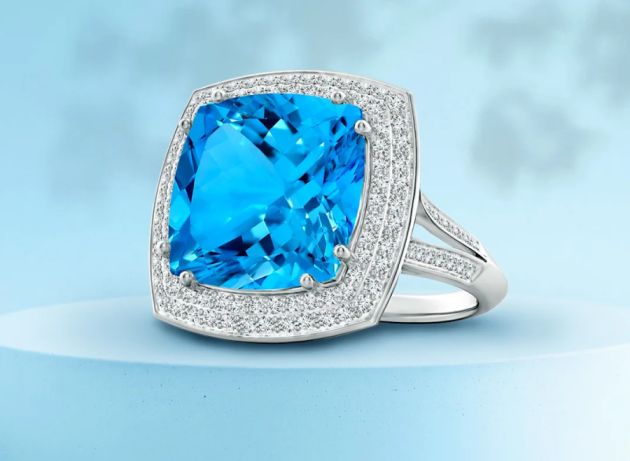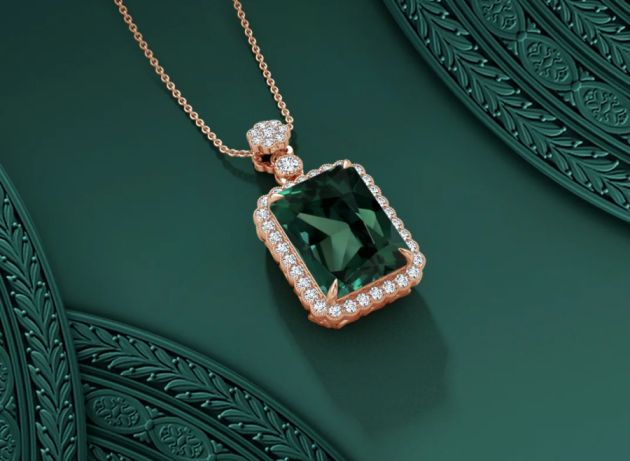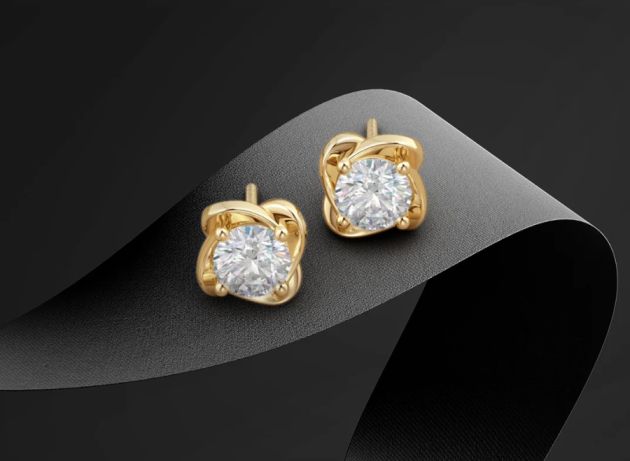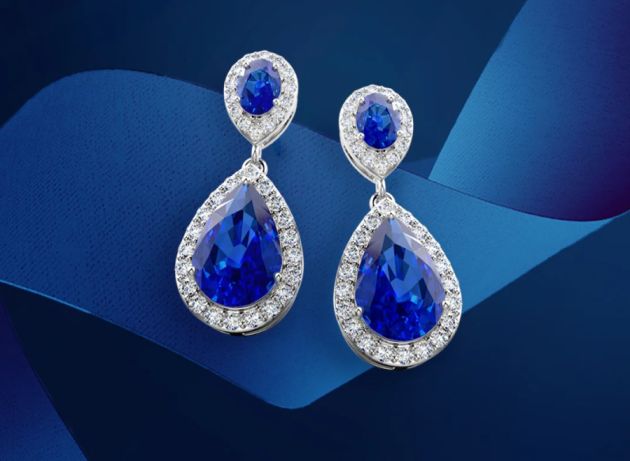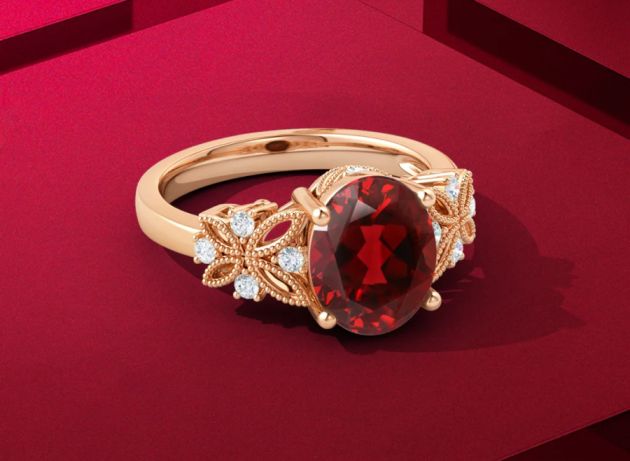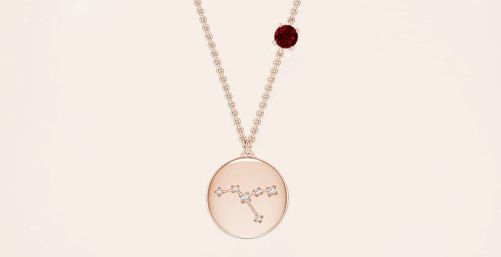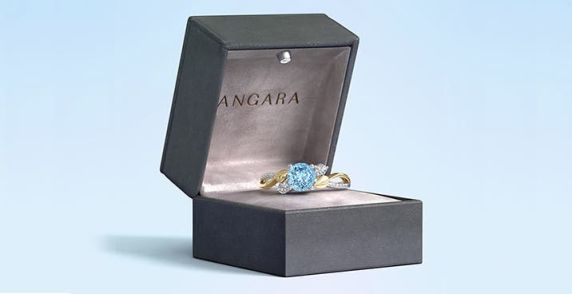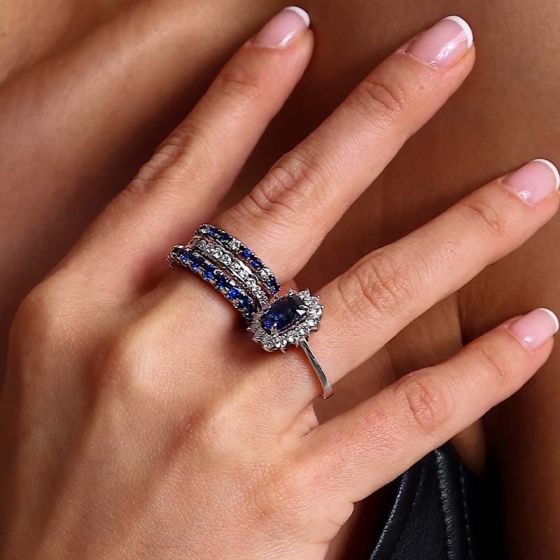An engagement ring is one of the most important jewellery pieces you’ll ever buy for your partner. It needs to look gorgeous, and also complement their taste.
Choosing between diamond and non-diamond rings is the first thing to consider when looking for your token of love. The centre stone is a critical part of this accessory and the sheer variety of options available is enough to throw most people off. If you find yourself nodding in agreement, then don’t worry because we’ve got your back!
To help you make your decision, we’ve listed down the pros and cons of diamond and non-diamond centre stones. This article will break it down for you and cover the differences between diamond and non-diamond engagement rings.
Diamond Centre Stone
Pros
- Due to its long-standing association with love and luxury, the diamond is considered the ultimate choice for a dreamy proposal.
- Diamonds are incredibly durable and have a 10/10 score on Mohs scale of mineral hardness, which makes them fit for everyday wear.
- The beauty and brilliance of a diamond is unparalleled.
- This gem is available in a variety of cuts and shapes. So regardless of your style preference, you’re sure to find something that fits the bill.
Cons
- Given their popularity for engagement rings, diamond centre stones have become quite a common option at this point.
- Diamond is one of the most expensive gemstones available today.
- The value of this gem can depreciate over time, which is one of the main reasons why many people avoid investing in diamonds these days.
- Considering its hardness, the diamond could end up scratching other items and gems if not handled carefully.
Non-Diamond Gemstones
Pros
- They are relatively pocket friendly.
- You can take your pick from a large variety of gems in vibrant and intense colours.
- Different gemstones have different legends and symbolisms associated with them. By picking a jewel based on these factors you are sure to end up with a meaningful ring.
- Non-diamond-coloured gemstones can give your engagement ring a more modern aesthetic.
Cons
- While any gemstone with an 8 or above rating can easily bear the brunt of daily life, it still won’t be as sturdy as a diamond.
- Most coloured jewels cannot be exposed to bright light for a long period of time as that can lead to dullness and negatively affect the gem’s lustre.
- Typically, these stones do not hold the same level of social status that a diamond enjoys.
- The colour of the gemstone may not be compatible with your partner’s skin tone.
The best non-diamond engagement rings are rings with gemstones that rate pretty high on the Mohs scale of mineral hardness. These gemstones are tough enough to withstand everyday wear. Some of the best gems for engagement rings besides diamonds are sapphire, ruby and topaz.
So, Which One Do You Choose?
Honestly, there is no right or wrong answer here and it eventually comes down to your partner’s requirements and personal preferences.
When deciding between a diamond vs. non-diamond engagement ring, consider their style, taste and lifestyle. If they lead an extremely active life and have a more traditional sense of style, then we recommend opting for a diamond engagement ring. On the other hand, if your partner has an eye for all things unique, bright and vivid, then we highly suggest choosing a coloured gemstone.
Conclusion
More often than not, it is the effort that goes into choosing an engagement ring that makes it truly special. By taking into account the pros and cons mentioned above, we’re sure that you’ll have no problem selecting the right stone for your partner.
So go ahead, and plan the perfect proposal! And now that you know how to pick an engagement ring, you can shop for your partner’s dream ring at Angara.
Also read: Which Is The Best Gemstone For An Engagement Ring?
FAQs
1. How do the costs of diamond and non-diamond engagement rings compare?
Typically, diamond engagement rings tend to be more expensive than non-diamond options but there are plenty of stunning alternatives that won’t break the bank. You can also choose lab-grown diamond and coloured gemstone rings that are exactly the same as their earth-mined counterparts but easier on the pocket.
2. How does the durability of non-diamond gemstones compare to that of diamonds for everyday wear?
Some non-diamond gemstones are durable enough for everyday wear, as long as they are properly cared for and set securely in the ring. Sapphire and ruby are only second to diamond in terms of toughness.
3. Are there any differences in cultural or personal significance between diamond and non-diamond engagement rings?
While diamonds are traditionally seen as a symbol of eternal love, non-diamond rings can hold just as much sentimental value and can be chosen based on personal taste or cultural significance.
4. How can I determine which type of engagement ring, diamond or non-diamond, is best suited to my partner’s preferences and lifestyle?
Consider your partner’s personal style, daily activities and preferences when choosing between a diamond or non-diamond engagement ring to ensure it suits their lifestyle and tastes perfectly. For a more active lifestyle, it’s better to choose diamonds or coloured gemstones that rank high on the Mohs scale of mineral hardness.
